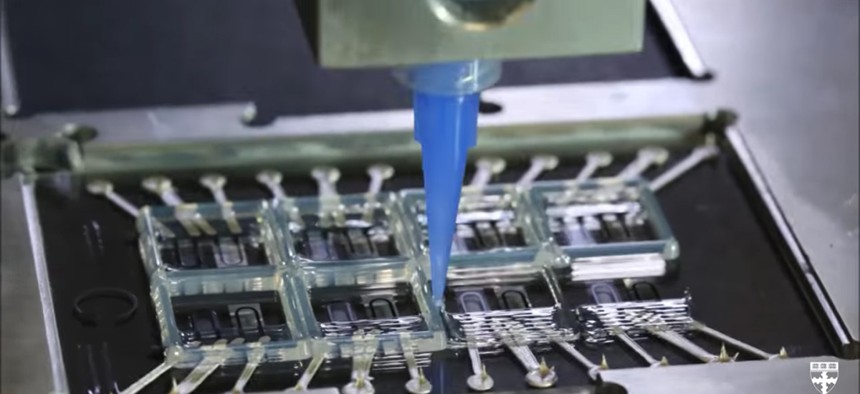Harvard’s 3D-Printed 'Heart-on-a-Chip' Could Replace Animal Testing One Day

Harvard University/Youtube
The device holds heart tissue and reads its reactions to cardiac drugs.
Harvard researchers just developed a small, transparent “chip” that pulses like a heart and may one day replace animals in cardiac drug tests.
Called a “heart-on-a-chip,” the 3-D-printable medical device holds heart tissue and reads its reactions to cardiac drugs. One side of the chip is covered in lab-grown heart muscle cells, which contract and relax like they do in one’s heart, giving the chip a “beat.” Then, a built-in sensor measures the pulse’s rate and strength, so researchers can record how the “heartbeat” fluctuates when the chip comes in contact with various drugs.
Chips storing human cells can potentially be more accurate than animals in drug tests, aside from being more humane, said Johan Ulrik Lind, a Harvard researcher who wrote a study on the device.
He hopes the research will one day lead to rapid production of customized chips with specific patient cells, which will allow doctors to study how an individual patient responds to certain drugs.
NEXT STORY: DOJ seeks digital services director





